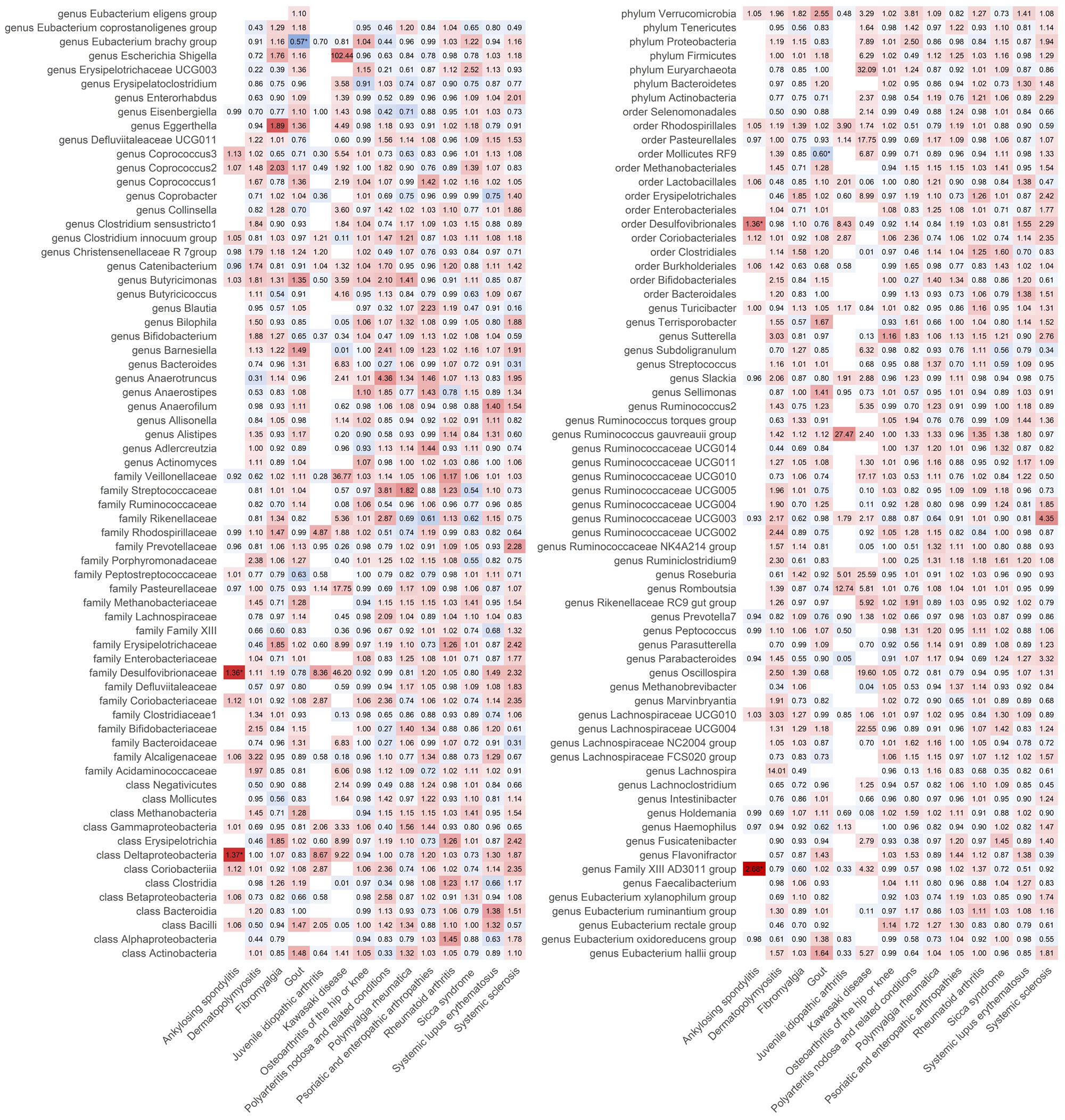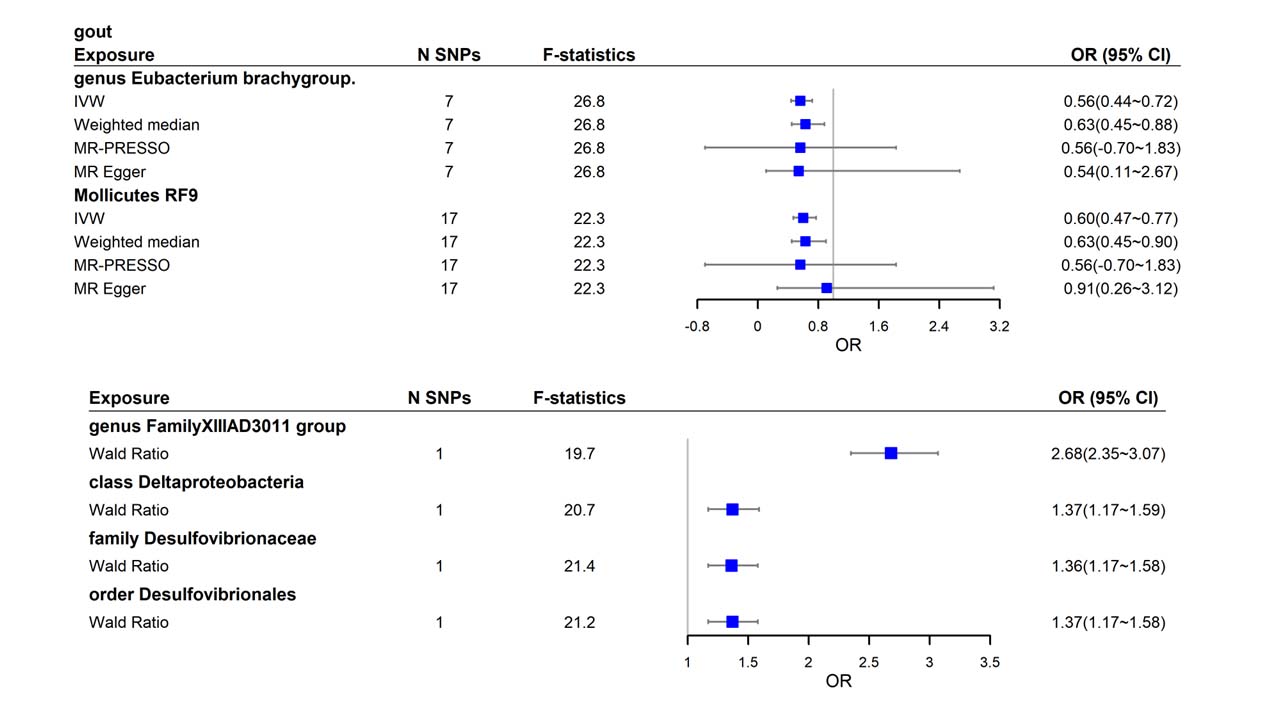Session Information
Session Type: Abstract Session
Session Time: 9:00AM-10:30AM
Background/Purpose: Gut microbiota has been increasingly recognized as important and novel targets for rheumatic diseases. However, previous studies mostly examined the associations, leaving causality largely unknown, which hinders the clinical application of gut microbiota in preventing and treating rheumatic diseases.
Methods: We performed Mendelian randomization (MR) analysis to investigate the causal associations between gut microbiota and rheumatic diseases. The genetic instruments for 141 gut microbiota taxa were extracted from the published genome-wide association study (GWAS) of individuals with European ancestry (N=18,340), and the summary statistics for 14 rheumatic diseases (sample size ranges from 6,190 to 417,596) were obtained from publicly available GWASs and the FinnGen database. Several MR methods (e.g., inverse-variance weighted and weighted median) were used to examine the causal association, and bi-directional MR and colocalization analyses were performed to examine the potential bi-directional causality and whether the gut microbiota and rheumatic disease share the same causal variant, respectively.
Results: Six pairs of relations between gut microbiota and rheumatic diseases remained statistically significant after multiple testing (FDR < 0.05), among which Genus FamilyXIIIAD3011 group (odds ratio [OR]=2.68, 95% CI=2.35-3.07), class Deltaproteobacteria (OR=1.37, 95% CI=1.17-1.59), family Desulfovibrionaceae (OR=1.36, 95% CI=1.17-1.58) and order Desulfovibrionales (OR=1.36, 95% CI=1.17-1.58) increased the risk of ankylosing spondylitis. Genus Eubacterium brachy group (OR=0.57, 95% CI=0.44-0.72), order Mollicutes RF9 (OR=0.61, 95% CI=0.48-0.77) decreased the risk of gout. Among them, the results were consistent across different MR methods. Using colocalization analysis, we identified that class Deltaproteobacteria, family Desulfovibrionaceae, and order Desulfovibrionales shared the same genetic variants with ankylosing spondylitis. No evidence of bi-directional causality was found between microbiota and rheumatic disease.
Conclusion: We identified and provided genetic evidence for six novel causal associations between gut microbiota taxa and rheumatic diseases. If confirmed by future animal studies or clinical trials, our results can serve as new clinical targets for rheumatic diseases and thus is conducive to the prevention and treatment of ankylosing spondylitis and gout.
To cite this abstract in AMA style:
Hu Y, He H, Zhang Y, Lyu H, Zeng C, Wei J, Lei G. Causal Associations Between Gut Microbiota and Rheumatic Diseases: A Mendelian Randomization Study [abstract]. Arthritis Rheumatol. 2023; 75 (suppl 9). https://acrabstracts.org/abstract/causal-associations-between-gut-microbiota-and-rheumatic-diseases-a-mendelian-randomization-study/. Accessed .« Back to ACR Convergence 2023
ACR Meeting Abstracts - https://acrabstracts.org/abstract/causal-associations-between-gut-microbiota-and-rheumatic-diseases-a-mendelian-randomization-study/



